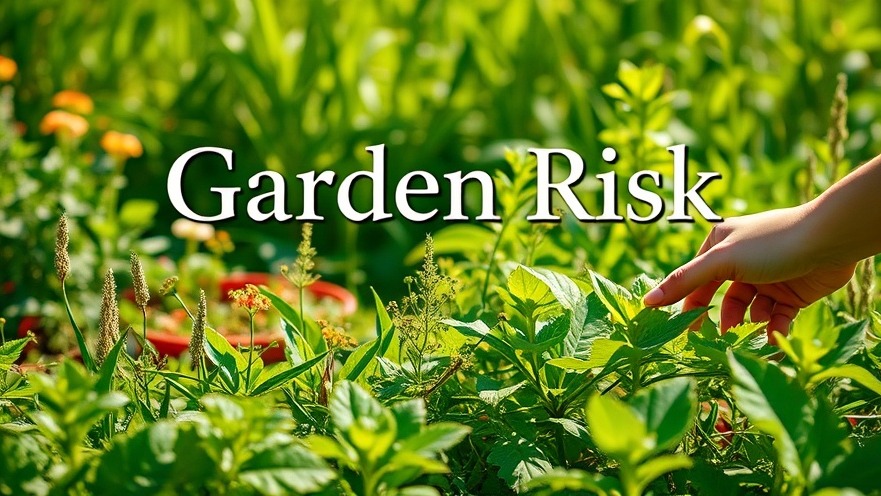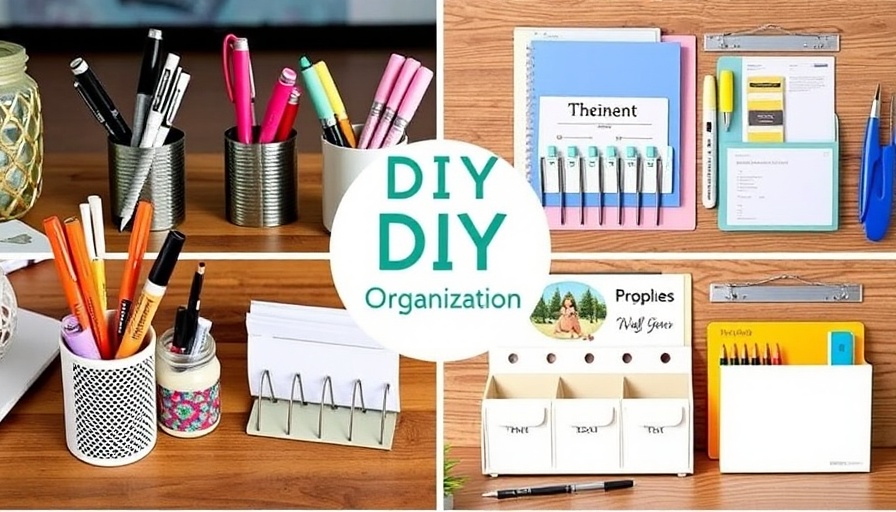
Why Using Bleach to Kill Weeds Isn’t Worth the Risk
Homeowners often seek effective yet affordable solutions to pesky yard weeds, and bleach is commonly thrown into the mix. While it may appear to be a quick fix at face value, the long-term consequences far outweigh the fleeting benefits. Bleach, or sodium hypochlorite, effectively kills plants by dehydrating them and breaking down their cellular structure. But before deciding to use this household item as a DIY weed killer, it's critical to weigh its impact on the environment and your garden.
The Science Behind Bleach as a Weed Killer
Bleach works its magic by stripping moisture from weeds, rendering them unable to survive. It is most effective on smaller weeds that occur in hard-to-reach areas, such as cracks between pavements. However, the irony lies in its non-selectivity: while it destroys unwanted vegetation, it does not discriminate between weeds and surrounding plants that deserve to thrive. This has left many gardeners questioning: Is bleach a good choice for managing weeds?
Navigating the Risks of Using Bleach
Despite its effectiveness, using bleach in your garden carries significant risks:
Soil Damage: Bleach alters soil pH levels, rendering it unsuitable for future plant growth.
Harm to Beneficial Organisms: Exposure to bleach can be lethal for earthworms and beneficial insects, disrupting the delicate ecosystem in your soil.
Environmental Concerns: Rain can wash bleach runoff into local water sources, posing a threat to aquatic life.
According to Ralph Mitchell, the director of the University of Florida Extension Office, “I cannot say this strongly enough: You should not use bleach to kill weeds.” This sentiment echoes across various expert opinions, driving home the point that the collateral damage can outweigh any immediate solutions that bleach may provide.
Alternative Strategies for Weed Control
Fortunately, there are multiple environmentally friendly alternatives that homeowners can utilize:
1. Vinegar
A popular homemade weed killer, vinegar with high acetic acid content acts effectively against weeds without leaving undesirable residues in the soil.
2. Boiling Water
Simply pouring boiling water over unwanted plants instantaneously kills them. This method is especially effective in flower beds or on pavement.
3. Salt Solutions
Salt can dehydrate and disrupt a plant's root system, making it particularly useful for treating areas where you don't intend to grow other plants.
4. Manual Weed Removal
Nothing beats the tried-and-true method of hand-pulling weeds. This approach not only guarantees that you remove the entire root system but also serves as an excellent workout.
5. Mulching
Applying layers of mulch shields the soil from sunlight, preventing weed growth while enriching the soil as it decomposes.
Making Informed Decisions
Ultimately, while bleach may briefly remedy unsightly weeds, its broader impact is detrimental to both soil health and local ecosystems. Homeowners should instead focus on sustainable practices that preserve the integrity and vitality of their gardens. So, whether you have a sprawling backyard or a cozy lawn, taking a moment to consider safer alternatives could save a great deal of trouble down the road.
Call to Action: Make the Right Choice for Your Garden
If you’re eager to maintain the health of your garden and foster a thriving ecosystem, explore alternative weed-killing methods that are as effective as they are environmentally friendly. Your garden will flourish, and you’ll contribute to a more sustainable environment!
 Add Row
Add Row  Add
Add 


 Add Row
Add Row  Add
Add 

Write A Comment